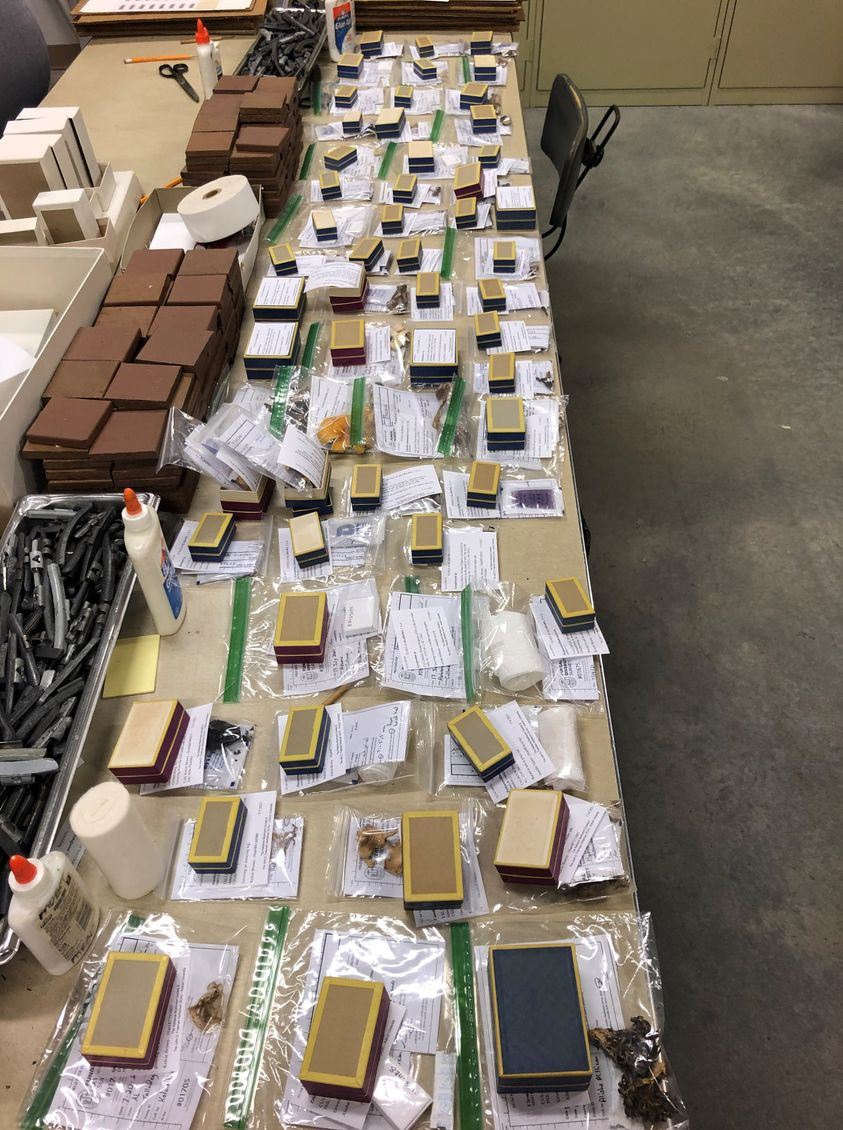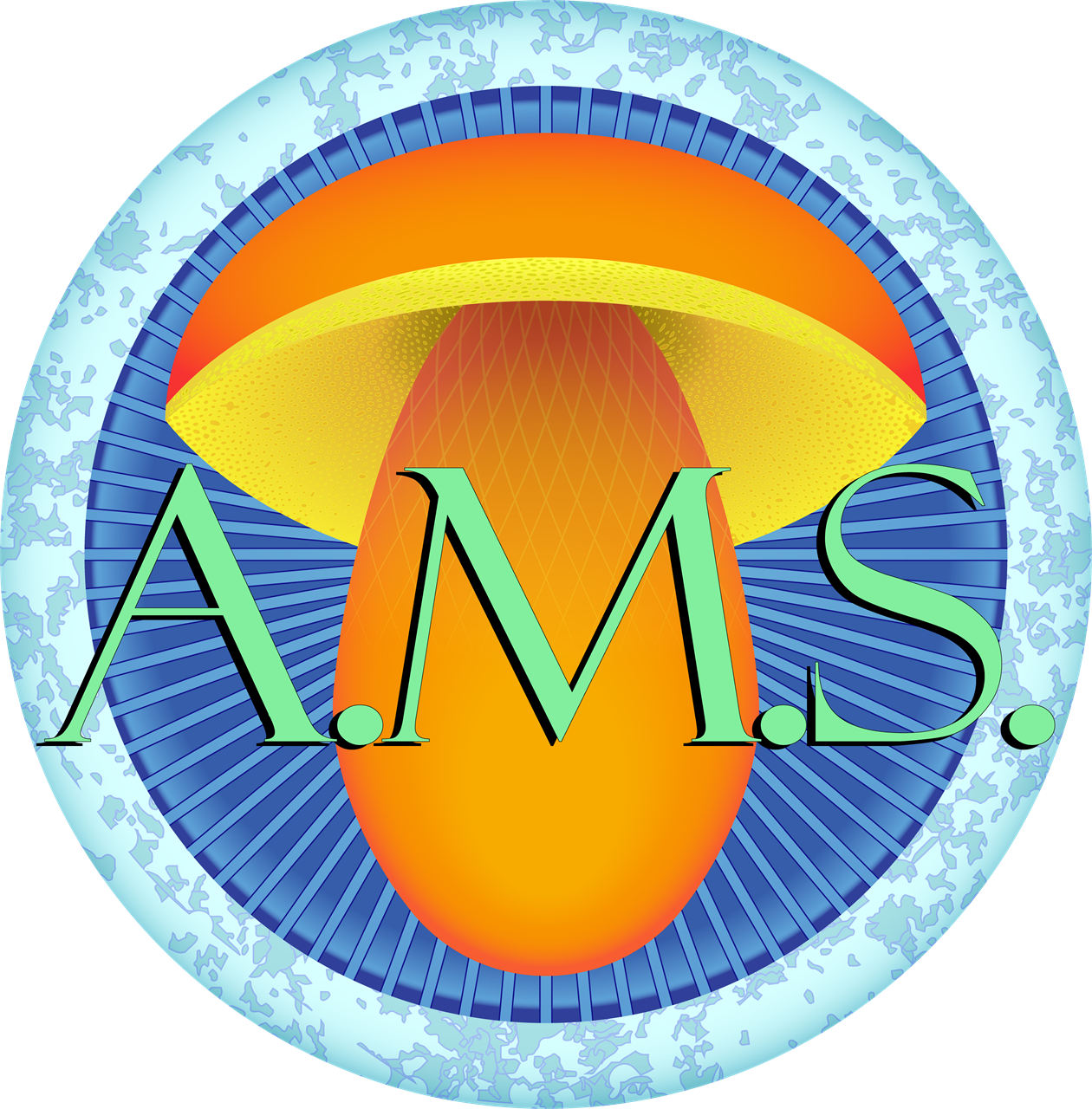Alabama Mushroom Society |
Alabama Fungal Diversity Project
Part of the Alabama Mushroom Society's mission statement is "to promote advancement in the science of mycology." One of the ways we are working to fulfill that mission is by establishing the AMS Collection Committee, a team of dedicated individuals working to make high quality observations and collections of fungi in Alabama. These observations and collections serve several different purposes, as outlined below.
FunDiS Sequencing Grant: In 2021, the Alabama Mushroom Society applied for a Fungal Sequencing Grant through the Fungal Diversity Survey. We were lucky enough to receive the grant, which covered the sequencing costs for 50 fungi. This is how the Alabama Fungal Diversity Project was born. We started recruiting individuals that wanted to help us collect these specimens and the more we learned, the more excited we were to make scientific contributions. FunDiS helped put us in contact with the John D Freeman Herbarium at Auburn University where we could archive our collections. We submitted all 50 of our samples in November of 2021 and the results showed that nearly half of the sequenced specimens are either undescribed or have not been previously sequenced.
Data Collection: Primarily, by going out in the woods and logging excellent observations on iNaturalist, we are collecting data about what mushrooms grow in Alabama. There are many many under documented species in our state. In 2021, we set out on a mission to find Purpurcillium atypicola in Alabama. There was only one documented sighting that was logged on iNaturalist in 2018 here: https://www.inaturalist.org/observations/29178659 and zero observations on Mushroom Observer. As of December 2021, our team had logged 72 specimens of A. typicola in Alabama, proving that it is not rare, just under-documented. We aim to collect data to better understand what fungi are present in Alabama.
Herbarium Partnership: In 2021, we partnered with the John D Freeman Herbarium at Auburn University to archive vouchered fungi specimens from Alabama. By the end of 2022, we had logged, collected, dried and sent 382 fungi to the herbarium at Auburn where they are available for researchers to access and study.
In 2022, Collection Committee Chair and AMS President Alisha Millican was appointed as the Assistant Curator of Fungi at the University of West Alabama Herbarium, and we transitioned to the majority of our collections being deposited there. As of August 2024, we have accessioned more than 900 collections at UWA.

DNA Sequencing: In 2022, we partnered with Stephen Russell of Mycota Labs to have all our collections at the 2022 Alabama Mushroom Faire sequenced. AMS purchased equipment to be able to run our own PCR that same year, making DNA sequencing of specimens within out budget. However, in 2023, we were awarded a second FunDiS Sequencing Grant (through Mycota Labs) which allowed us to send sequences with zero cost to us. We sent in 1003 speciemens, which included collections made at the 2023 Alabama Mushroom Faire. With the establishment of the Ohio Mushroom DNA Lab using Nanopore technology that same year, it was no longer cost effective to run our own PCR. Through partnerships with Mycota Lab and the Ohio Mushroom DNA Lab, we are now able to sequence nearly every specimen we collect.
Supplying Researchers Directly: The magic of the internet has put us in contact with many different researchers who need boots on the ground collecting fungi for their research projects. We act as parataxonomists, in that we screen collections for correct identification, proper documentation and complete drying/preservation. We receive enough collections that we save them up and ship them directly to researchers in batches. Whenever possible, we will make a split of a collection and accession it at the University of West Alabama Herbarium, but priority for collection that can't be split goes to the researcher. We also handle any international shipping paperwork and foot the shipping costs, which can be costly when shipping outside the Country. We have, so far, sent specimens to researchers in 5 different countries and in 8 different states. See below for details on what fungi we are currently looking to collect for specific researchers. If you yourself are a researcher needing collections for your research, please reach out to us at almushroomsoc@gmail.com
If this all sounds interesting and you would like to get involved, find us on Facebook. at https://www.facebook.com/groups/AlabamaMushroomSociety or send us an email at www.almushroomsoc@gmail.com
You can learn about making your own useful observations and collections for our projects on our Citizen Science page here: Citizen Science How-To













 Trechisporia
Trechisporia












